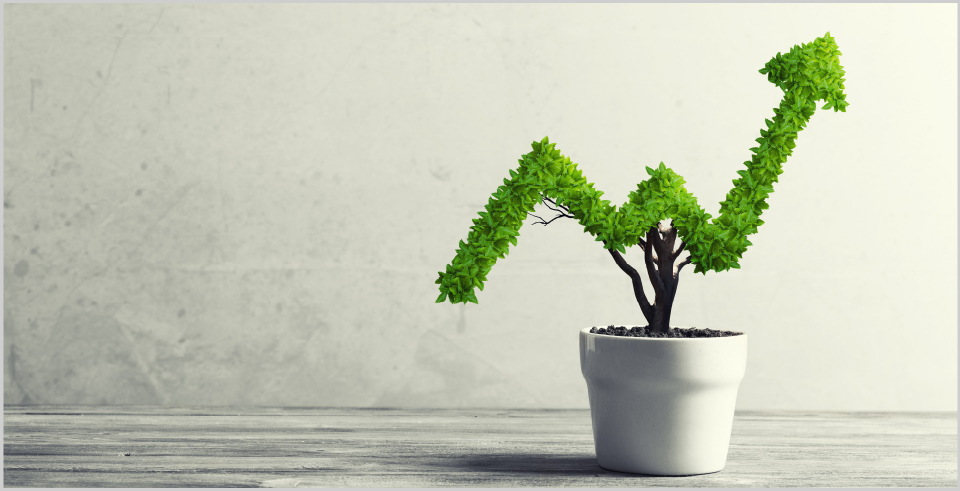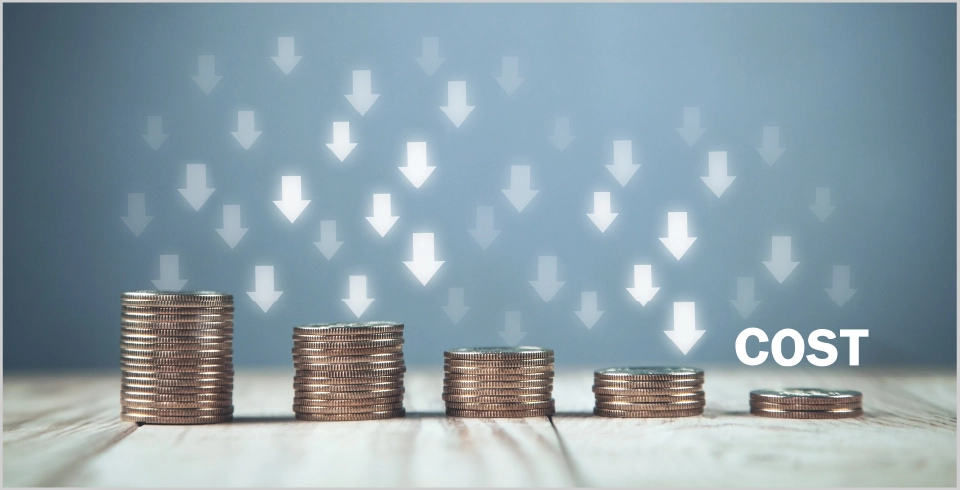However, although 90% of executives believe sustainability is essential, only 60% have an eco-strategy. Most business owners need help to shift from their existing operations to being green. They face significant challenges while implementing sustainable business practices.
Although “greening” the company requires an initial investment, putting sustainability first will ultimately result in cost savings. According to McKinsey’s study on the sustainability business, 33% of companies now use sustainable practices to raise operational effectiveness and save costs. Going green can help cut business expenses.
For example, using renewable energy, an average commercial property owner can save roughly $500 per month on electricity, which equates to savings of $587,377 over the life of the solar power system, despite the upfront expenditure required to switch to solar energy. Most firms recover the cost of their panels in five to seven years. Even tax credits, refunds, and savings are available from the federal government for greener practices.
Companies with sustainability ingrained into their strategies outperform those that don’t: they enjoy an 18% greater ROI because they control and anticipate climate change. Having a strong sustainability program will help the firm’s financial performance. According to Harvard Business Review researchers: “Organizational and technology innovations that focus on sustainability can produce both top-and bottom-line benefits.
Sustainable business practices make employees happier and more productive at work. According to a global study, 46% of professionals will only work for companies that follow sustainable business practices, and 61% of professionals believe that firm sustainability is essential. Businesses can use sustainable practices as a powerful tool in their personnel retention strategy. A better work environment with sufficient ventilation, natural lighting, and ergonomic furniture is typically provided by sustainable enterprises. These things can aid in stress reduction and boost workplace spirit. Similarly, the ethical treatment of employees is connected to sustainable company operations. For instance, regardless of an employee’s position, the company may promote worker unions or provide equal benefits and pay to all employees.
Sustainable businesses generate more revenue because they are more cost-effective and run more effectively. Investors increasingly use ESG measures to decide whether a company is worth its investments. According to BCG research, businesses using best ESG practices could increase their profits by 81% by reducing carbon emissions and increasing the use of renewable resources.
Among the biggest energy consumers in the US are Google, Facebook, and Amazon, and a considerable portion of their consumption is now emission-free. Each business is committed to supplying its data centers with all the energy they need from renewable sources like wind and solar. These green energy commitments reduce the enormous utility costs of tech firms by an estimated 10% because renewable energy is now more affordable than fossil fuels.
The COVID-19 pandemic and the global supply chain crisis are all indicative of the impending economic recession that lies ahead. As a result, risk resilience is increasingly becoming critical for enterprises to survive during uncertain times. But the question remains what businesses can do to mitigate the crisis? This is where the need to have a strong ESG strategy becomes essential.
ESG is a must-have strategy to combat environmental and societal risks during economic turbulences like a recession. It helps businesses cut costs, mitigate risks, diversify product offerings, focus on profitable aspects, and, most importantly, nurture top talent in a volatile economy. Organizations need to re-evaluate their strategies, double their sustainability commitments, and align their business model with Earth’s ecosystem to better equip their business for future disruptions.
Sustainable business models felicitate redesigning products, processes, or systems to accommodate new approaches and encourage innovation and creativity among employees and clients. But where there are opportunities, there are also challenges. So, the below listed are a few challenges that companies face in adopting sustainability practices:
According to Gartner Report, 30% of supply chain leaders today have no or low-maturity supply chain sustainability goals. Creating a truly sustainable company is impossible without traceability and transparency in the supply chain. This has been the primary concern regarding business sustainability. A corporation cannot guarantee sustainability without a thorough view of a product’s lifecycle from raw materials to the point of sale. And without first mapping what must be done and where it cannot take significant action.
A sustainable business must also act quickly to end its participation in modern slavery and fulfill its promises to provide fair labor. This can only be accomplished by shedding light on supply chain components that are frequently concealed (even, sometimes, to the companies themselves).
Organizations are used to a specific operations mindset, so the new changes demanded by sustainable practices are forcing them to think about the many jobs they do. Management systems must promote better utilization and reuse of resources. Need for Substantive Investments: Building a sustainable business requires new investments. Investments in LED-powered lighting systems using natural lighting, wind power, and solar energy may require structural modifications in addition to new infrastructure, leading to changes in energy consumption, material selection, and technology.
Senior management must intervene and lead the change. Employees must be adequately nurtured by the need to build sustainable future organizations, and a change needs to be adopted. Also, the employees need to be exposed to the changing roles in the process. In addition, they need training and skilling due to the introduction of new technologies to address sustainability.
Compliance plays a functional key role in sustainability challenges by managing the risks, disclosures, norms, and standards. Certain countries have laws and regulations related to sustainability, and businesses that do not comply with those regulations may face penalties.
Most businesses lack the desired resources to support their adoption of modern technologies and technical expertise in financial, human, or technological to successfully execute their sustainable development programs.
Sustainability is a constant process that calls for critical self-analysis, innovation, and risk. There is no simple one-step solution to building a sustainable business model. In other words, a company should be ready to be self-reflective and critical about all its operations and associated impacts before starting this journey toward sustainability.
So, are you able to meet your sustainability commitments? If not, don’t worry – Quinnox can help create sustainable value for your businesses and can assist you in overcoming the challenges by positively disrupting sustainability efforts.





